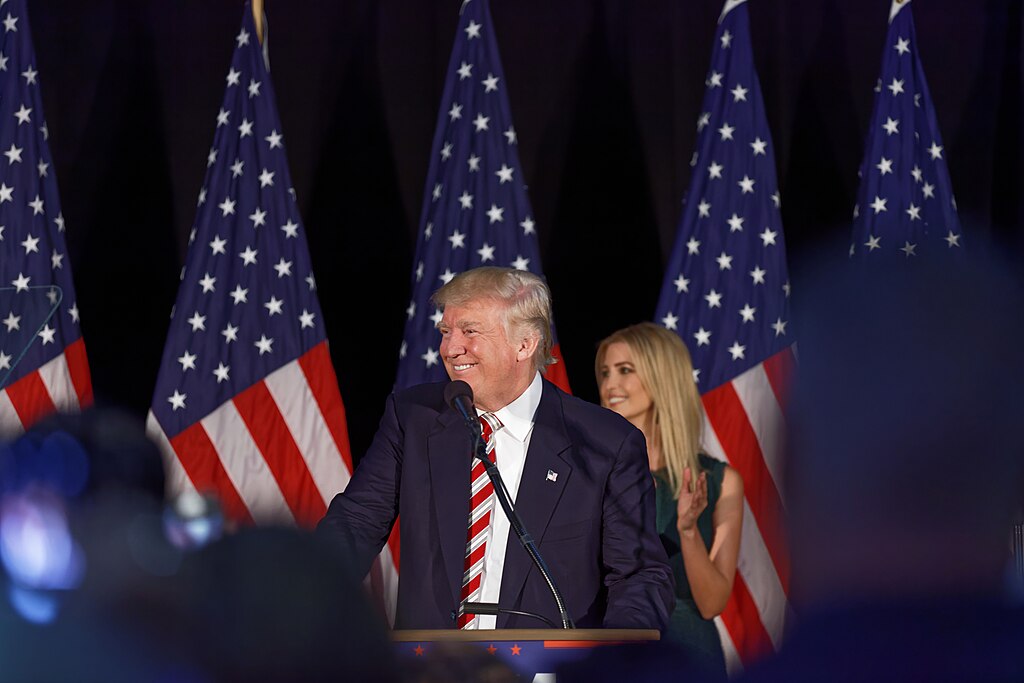In a surprising political move, Robert F. Kennedy Jr. revealed that former President Donald Trump has allegedly promised to grant him substantial control over multiple public health agencies, including the U.S. Department of Health and Human Services (HHS) and the U.S. Department of Agriculture (USDA), should Trump win a second term in office. Kennedy’s statement has ignited debate over the future of federal public health policies, with both supporters and critics expressing strong reactions.
Kennedy, known for his stance against certain vaccine policies and his skepticism of public health protocols, made the claim during a recent interview. He stated that Trump has privately assured him authority over key health agencies, allowing him to implement reforms aligned with his health views, which often diverge from mainstream medical consensus. “President Trump has promised me full control over these agencies if he’s elected,” Kennedy said. “He believes our public health policies need a complete overhaul, and he trusts me to make it happen.”
The implications of Kennedy’s alleged influence over HHS and USDA policies have drawn intense scrutiny. HHS, overseeing agencies such as the Centers for Disease Control and Prevention (CDC) and the Food and Drug Administration (FDA), plays a central role in public health, disease prevention, and drug approvals. The USDA, responsible for food safety and nutrition guidelines, would also fall under Kennedy’s control in this proposed arrangement. Health experts and political analysts have voiced concerns that Kennedy’s appointment could lead to a sharp pivot in federal health policies, given his controversial views on vaccine mandates and other public health measures.
Critics argue that Kennedy’s approach to public health could potentially undermine years of established scientific progress. “Allowing RFK Jr. to control HHS and USDA is a dangerous gamble,” said Dr. Mark Evans, a public health expert. “His positions on vaccines and other health policies run counter to mainstream science, and his appointment could put public health initiatives at risk.” Many worry that Kennedy’s influence could reshape federal health policy in ways that deviate from evidence-based practices, affecting everything from immunization guidelines to food safety standards.
Supporters of the proposal, however, see Kennedy’s potential role as a necessary disruption to what they describe as a rigid, bureaucratic approach to health. Trump campaign advisor and health policy advocate Sarah Thompson praised Kennedy’s focus on personal freedom and reform, stating, “RFK Jr. would bring fresh eyes to federal health agencies. This is an opportunity to question policies that may no longer serve the public’s best interests.”
Trump’s campaign has not confirmed Kennedy’s claims, and it remains unclear if the arrangement is formal or contingent upon Trump’s re-election. The former president has previously praised Kennedy’s commitment to “freedom of choice” in health matters, making the endorsement plausible to his base, yet divisive among public health professionals.
Kennedy’s statements come at a time when public health remains a prominent election issue, with candidates divided on topics from pandemic preparedness to vaccine policies. Should Trump win in November and follow through on his alleged pledge, Kennedy’s potential oversight of HHS and USDA could mark a significant shift in American public health policy.



 Argentina Senate Approves Bill to Lower Age of Criminal Responsibility to 14
Argentina Senate Approves Bill to Lower Age of Criminal Responsibility to 14  Trump Announces U.S. Strikes on Iran Navy as Conflict Escalates
Trump Announces U.S. Strikes on Iran Navy as Conflict Escalates  Netanyahu Suggests Iran’s Supreme Leader Khamenei May Have Been Killed in Israeli-U.S. Strikes
Netanyahu Suggests Iran’s Supreme Leader Khamenei May Have Been Killed in Israeli-U.S. Strikes  EU Urges Maximum Restraint in Iran Conflict Amid Fears of Regional Escalation and Oil Supply Disruption
EU Urges Maximum Restraint in Iran Conflict Amid Fears of Regional Escalation and Oil Supply Disruption  Zelenskiy Urges Change in Iran After U.S. and Israeli Strikes, Cites Drone Support for Russia
Zelenskiy Urges Change in Iran After U.S. and Israeli Strikes, Cites Drone Support for Russia  Australian PM Calls Alleged Western Australia Terror Plot “Deeply Shocking” After Arrest
Australian PM Calls Alleged Western Australia Terror Plot “Deeply Shocking” After Arrest  Pentagon Leaders Monitor U.S. Iran Operation from Mar-a-Lago
Pentagon Leaders Monitor U.S. Iran Operation from Mar-a-Lago  HHS Adds New Members to Vaccine Advisory Panel Amid Legal and Market Uncertainty
HHS Adds New Members to Vaccine Advisory Panel Amid Legal and Market Uncertainty  Trump Floats “Friendly Takeover” of Cuba as Rubio Reportedly Engages in Talks
Trump Floats “Friendly Takeover” of Cuba as Rubio Reportedly Engages in Talks  Argentina Tax Reform 2026: President Javier Milei Pushes Lower Taxes and Structural Changes
Argentina Tax Reform 2026: President Javier Milei Pushes Lower Taxes and Structural Changes  Trump Says U.S. Attacks on Iran Will Continue, Warns of More American Casualties
Trump Says U.S. Attacks on Iran Will Continue, Warns of More American Casualties  Macron Urges Emergency UN Security Council Meeting as US-Israel Strikes on Iran Escalate Middle East Tensions
Macron Urges Emergency UN Security Council Meeting as US-Israel Strikes on Iran Escalate Middle East Tensions  Iran Supreme Leader Ayatollah Ali Khamenei Killed in Israeli, U.S. Strikes: Reuters
Iran Supreme Leader Ayatollah Ali Khamenei Killed in Israeli, U.S. Strikes: Reuters  Trump Launches Operation Epic Fury: U.S. Strikes on Iran Mark High-Risk Shift in Middle East
Trump Launches Operation Epic Fury: U.S. Strikes on Iran Mark High-Risk Shift in Middle East  Israel Launches Fresh Strikes on Iran After Death of Supreme Leader Ayatollah Khamenei
Israel Launches Fresh Strikes on Iran After Death of Supreme Leader Ayatollah Khamenei  Middle East Conflict Escalates After Khamenei’s Death as U.S., Israel and Iran Exchange Strikes
Middle East Conflict Escalates After Khamenei’s Death as U.S., Israel and Iran Exchange Strikes  UK Accepts U.S. Request to Use British Bases for Defensive Strikes on Iranian Missiles
UK Accepts U.S. Request to Use British Bases for Defensive Strikes on Iranian Missiles 































